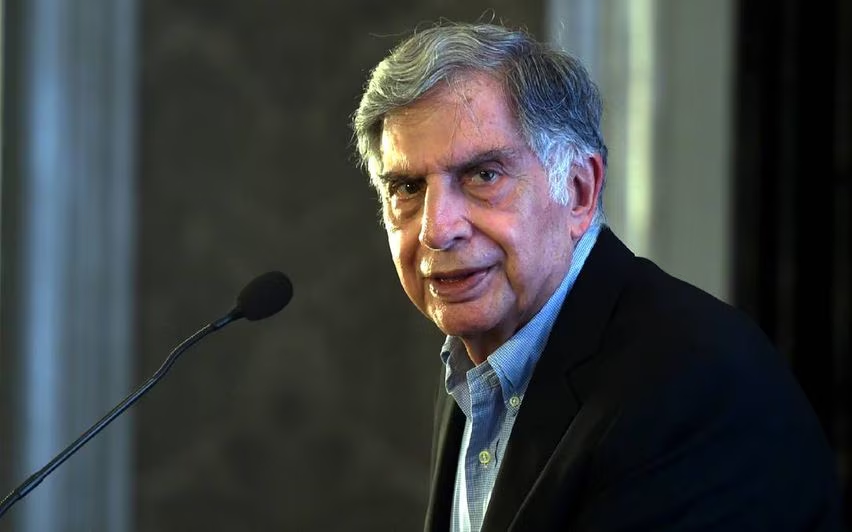Ratan Tata: Remembering a Visionary Leader Who Shaped India’s Industrial Future (1937-2024)
Introduction
On October 9, 2024, the world bid farewell to one of its most visionary business leaders, Ratan Tata, who passed away at the age of 86. His legacy of leadership, innovation, and philanthropy left an indelible mark not only on India but on the global business landscape. Born on December 28, 1937, into the prestigious Tata family, Ratan Tata went on to transform Tata Sons, the holding company of the Tata Group, into a global conglomerate with a presence in over 100 countries. His work extended far beyond business, touching millions of lives through his commitment to ethical leadership and philanthropy.
Achievements of Ratan Tata
Ratan Tata’s life was defined by a series of bold and forward-thinking decisions that cemented his place as one of the most influential industrialists of the 21st century. Some of his most significant achievements include:
- Global Expansion of Tata Group: Under Ratan Tata’s leadership, the Tata Group made landmark acquisitions that put India on the global business map. One of his most notable successes was the acquisition of Jaguar Land Rover in 2008, a move that revitalized Tata Motors and gave the company a significant foothold in the global luxury car market. Similarly, Tata Steel’s acquisition of Corus Steel in 2007 made Tata one of the world’s top steel producers.
- The Tata Nano – A Car for the Masses: In 2008, Tata Motors introduced the Tata Nano, a revolutionary attempt to make car ownership affordable for millions of Indians. Although the Nano didn’t achieve its commercial goals, it showcased Ratan Tata’s relentless drive to solve everyday problems for ordinary people. The car became a symbol of his ambition to create inclusive solutions for society.
- TCS and the IT Boom: During Ratan Tata’s tenure, Tata Consultancy Services (TCS) rose to prominence as one of the world’s leading IT services firms. His vision helped TCS expand its footprint across global markets, contributing significantly to India’s rise as an IT superpower. Today, TCS remains one of the most valuable tech companies in the world, with operations in over 40 countries.
- Tetley Tea Acquisition: One of the most iconic acquisitions under his leadership was the purchase of Tetley Tea in 2000. This made Tata Tea one of the largest tea companies in the world, showcasing Ratan Tata’s strategic foresight in expanding the company’s reach beyond India.
- Ethical Leadership and Corporate Social Responsibility: Throughout his career, Ratan Tata was known for his unwavering commitment to ethics and social responsibility. He believed that businesses should contribute to the well-being of society, not just focus on profits. Through initiatives like Tata Trusts, he channeled significant resources toward improving education, healthcare, and rural development in India. His philosophy of “nation-building” through responsible corporate governance continues to influence Indian business culture today.
Life Beyond Business
Ratan Tata’s life was a blend of business acumen and a deep sense of duty toward improving the lives of others. In addition to his remarkable business achievements, his personal life was filled with many diverse interests:
- Education and Early Career: After completing his studies in architecture at Cornell University and an advanced management program at Harvard Business School, Ratan Tata joined the Tata Group in 1962. Over the next few decades, he worked across various sectors of the company, building the skills and experience that would later define his leadership.
- Retirement and Philanthropy: Ratan Tata officially retired as chairman of Tata Sons in 2012, handing over the reins to his successor. However, even in retirement, he remained active in Tata’s philanthropic endeavors through Tata Trusts, which oversee over 60% of Tata Sons’ ownership. His focus on education, rural development, healthcare, and clean energy showcased his belief that a responsible business leader must always give back to society.
- Personal Investments in Startups: In the latter years of his life, Ratan Tata became a mentor and investor for Indian startups. He invested in several leading Indian companies, including Paytm, Ola, and UrbanClap, demonstrating his ongoing interest in fostering innovation and supporting young entrepreneurs.
Awards and Recognition
Ratan Tata was honored with numerous awards throughout his life, including India’s two highest civilian awards, the Padma Bhushan in 2000 and the Padma Vibhushan in 2008. His contributions to global business and industry were also recognized with honorary doctorates from universities around the world and accolades from international organizations such as the Carnegie Endowment for International Peace.
Ratan Tata’s Enduring Legacy
As we reflect on the life of Ratan Tata, his impact is felt not just in the vast Tata empire, but across Indian society. He pioneered a new way of doing business in India—one that combined global aspirations with local responsibilities. His drive for innovation, his unwavering ethical standards, and his commitment to improving society through business will continue to inspire future generations.
From steering the Tata Group through some of its biggest transformations to using his platform for the greater good, Ratan Tata’s life was one of purpose, integrity, and vision. His passing leaves a void, but his legacy lives on in the institutions he built, the lives he touched, and the future leaders he inspired.
Conclusion
Ratan Tata’s passing marks the end of an era in Indian industry, but his legacy will endure for generations. His contributions to business, society, and humanity will continue to inspire future leaders to strive for success while upholding ethical values. Ratan Tata was not just a business tycoon—he was a beacon of hope and a driving force behind India’s growth story.





